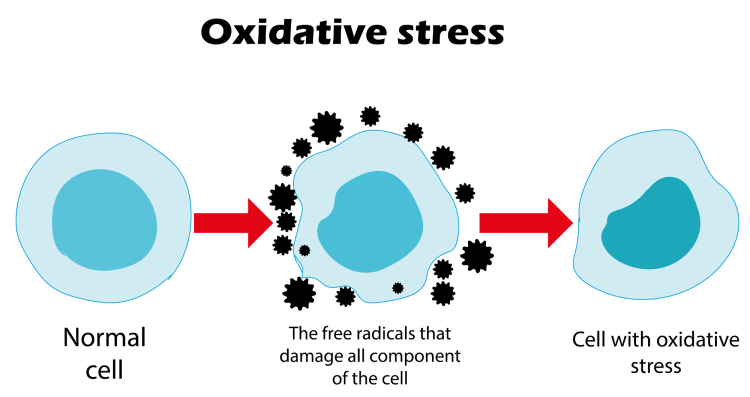Intermittent Fasting (IF) has emerged as one of the most popular fasting options today, with thousands of people advocating for its benefits. While intermittent fasting may help you achieve your weight loss goals and maintain a healthier lifestyle, recent discourse suggests a correlation between intermittent fasting and longevity.
I have been practicing IF for over a year and have observed a remarkable difference in my overall quality of life. Although I started 16:8 intermittent fasting to combat acid reflux issues, I have not only overcome most of my digestive and bloating issues but also feel much fitter and more active throughout the day than before.
What I find best in IF is the flexibility this fasting method offers. In my case, I choose to eat an early dinner and fast through the night.
Calculate Your Autophagy Timeline
Find out exactly when your body enters autophagy based on your unique profile, diet, and fasting protocol.
Calculate My Autophagy Window →As a periodic fasting plan that allows you to choose between different eating and fasting phases, intermittent fasting offers greater flexibility than most other dieting regimens. Moreover, intermittent fasting does not prescribe any strict diet plan and offers flexibility in planning the eating phase. This makes it easier to practice intermittent fasting to a great extent.
I have deliberated on the essential components of intermittent fasting that impact overall health and can improve longevity.
Here’s what you can expect from this article: the health benefits of intermittent fasting, how it affects longevity, the associated risks, and how to get started with fasting.
If you’re considering integrating intermittent fasting into your daily routine to achieve a longer, healthier life, this thorough guide can be invaluable.
Effects of Intermittent Fasting on Longevity
Obesity, inflammation, aging, and oxidative stress are among the factors that can negatively affect your overall health. Here’s how intermittent fasting improves these markers to boost longevity and health:
Reduction in Oxidative Stress
Oxidative stress can occur due to an imbalance between free radicals and antioxidants present in your body, causing damage to various organs and tissues. Higher levels of such damage can give way to diseases in the body. Studies reveal that intermittent fasting can minimize this oxidative stress. (6)
Wondering how a reduction in oxidative stress can improve longevity?
Well, oxidative stress can be correlated with many degenerative diseases, such as neurodegeneration, diabetes, cancer, and cardiovascular diseases. Practicing intermittent fasting can protect your body’s deoxyribonucleic acid (DNA) and promote longevity at the cellular level. As DNA carries information about the functioning and growth of an organism, its protection can ensure a longer life.
Healthy Weight Maintenance
Research indicates that being overweight can significantly diminish the chances of healthy aging and also increase the risk of early mortality (7). An intermittent fasting plan allows your body to shift metabolism and triggers an innate fat-burning mechanism.
Be it abdominal fat or overall obesity, it is reflected by your waist circumference and waist-to-hip ratio (WHR). Increased WHR is known to be associated with increased mortality. Also, a higher Body Mass Index (BMI) can trigger the risk of developing type 2 diabetes, hypertension, and other chronic diseases in males and females, which adversely affect longevity.
Intermittent fasting promotes natural equilibrium in your body by making you abstain from food for certain periods.
Monitoring your food intake during the eating window can aid in weight loss, thus making intermittent fasting a sustainable approach over other restrictive diets. Hence, you can maintain a healthier weight with intermittent fasting. Topping this with exercise, an active lifestyle, and healthy eating habits can lower the risks of chronic disease and early mortality.
Prevention of Chronic Inflammation
Studies indicate that chronic inflammation can lead to several diseases. (8) Here’s how it can impact your health and longevity:
- Chronic inflammation can increase the risk of a condition called atherosclerosis. This state bears the characteristics of low-grade chronic inflammation and can trigger chances of stroke or other such cardiovascular events.
- Low-grade inflammation has been linked to one of the underlying factors behind different cancer forms.
- As diabetes has also been associated with chronic inflammation, the ailment can increase other health risks that could affect the eyes, nerves, and kidneys.
- Other diseases such as rheumatoid arthritis, allergic asthma, chronic kidney disease, and irritating bowel disease are forms of inflammatory disorders.
Reducing inflammation can increase your chance of enjoying a longer and healthier life by keeping these inflammatory diseases at bay.
Intermittent fasting can reduce markers of inflammation in the bloodstream, aiding your body in shifting to a fat-burning mode and generating ketones. As a result, your body will start activating anti-inflammatory elements that are typically inactive during the eating and fed state.
Fasting increases your body’s insulin sensitivity and can simultaneously improve gut microbiome health and control overall inflammation.
Boosts Cell Repair
The cells in your body can remove cellular waste in the fasting state. This process is known as autophagy. In this process, your body cells clear out dysfunctional proteins and worn-out cellular elements that may have accumulated over time. This benefits your metabolic health, strengthening your body’s immune function and supporting anti-aging.
Enhanced cellular function can decelerate the aging process. Some studies indicate the use of fasting to treat cancer as it can improve the response to chemotherapy. (9)
Aging Reversal
Caloric restriction has shown positive results in reversing aging and increasing lifespan (10). Eating a balanced diet during the intermittent fasting eating windows and embracing an active lifestyle can enhance the likelihood of reversing age-related health issues.
Age reversal can protect you against the severity of age-related ailments like heart disease and neurological diseases such as Alzheimer’s, Parkinson’s, and brain stroke. (11)
Getting Started with Intermittent Fasting for Longevity: Pro-Tips
Once you are ready to begin intermittent fasting, here are some tips that can come in handy in your efforts toward living a healthier and longer life:
Eat Healthy
Although intermittent fasting doesn’t mandate following a strict diet, eating balanced and healthy meals during your feeding window can enhance IF benefits.
Issues of hypertension or dementia can increase with age and, in turn, trigger aging. Maintaining eating patterns that lower the risk of chronic conditions can slow aging and enhance longevity. The Mediterranean diet has become a favorite among people practicing intermittent fasting. Such a diet is rich in fiber, healthy fats, and antioxidants.
You must include nutrient-dense foods in your eating period, as they can help maintain a healthy weight and provide adequate support to your body through fasting. From improving insulin sensitivity to minimizing inflammation and enhancing lifespan, the Mediterranean diet can offer many benefits when included in your intermittent fasting eating window.
Maintain a Low-Glycemic Diet
Along with eating a balanced diet, aim for low-glycemic foods. Choosing beverages with added sugar, food cooked in refined oil, and processed foods can make fasting less effective.
While tea or coffee may suppress your hunger, adding sugar to these beverages can increase overall calorie intake. Studies reveal that restricted calorie intake, regular meal timing, and reduced eating frequency can improve longevity. (12)
A low-glycemic diet combined with high protein consumption can aid in fighting age-related issues and increasing lifespan.
Health Benefits of Intermittent Fasting
Here is how this popular fasting method can benefit your overall health1):
Insulin Levels and Insulin Resistance
Research indicates intermittent fasting can be a therapeutic measure for individuals looking to regulate their blood glucose levels and improve lipid metabolism2). This, in turn, can enable weight loss and improve insulin resistance.
Achieving Weight Loss Goals
Whether you have been struggling to eliminate that visceral fat sitting on your waist or seeking faster achievement of your weight loss goals, periodic fasting can help. An intermittent fasting plan helps limit your overall food intake. This is possible because IF is a time-restrictive eating method that usually reduces the number of meals you eat daily. Hence, fewer meals can also restrict the number of calories you consume within a day, helping with weight loss. However, if you choose to eat calorie-dense food throughout the eating period, it may add to the overall calorie load in your body. Therefore, eating limited calories by making healthier food choices can limit calorie intake and lead to weight loss.
Reduced Inflammation
Chronic inflammation has been associated with an increased risk of diseases such as diabetes, obesity, cancer, rheumatoid arthritis, and heart ailments, among others. Studies reveal that intermittent fasting can help combat inflammation. (3)
Improved Heart Health
Heart diseases have become common, affecting millions of people worldwide. Today, even the younger population is falling prey to various heart ailments. Several health risk factors are associated with heart disease. Studies indicate that intermittent fasting can improve such heart health markers.
From improving blood pressure and sugar levels to regulating bad cholesterol and triglycerides, intermittent fasting can improve your heart health. (4)
Aside from physical health, intermittent fasting can also benefit your mental health. Studies indicate that fasting can boost your brain functions. Be it stress resistance, reduced risk of neurogenerative diseases, or better memory, fasting can enhance your mental health. (5)
Risks of Fasting
Intermittent fasting is considered generally safe for most people, as it has few side effects. Moreover, you can choose from a variety of intermittent fasting plans. From fasting for 12 hours a day to following the 14:10 or 16:8 method or adopting the 5:2 diet, alternate day fasting, or weekly 24-hour fasting, the options can help you tweak intermittent fasting to suit your lifestyle and preference.
While fasting has its benefits, it may not be for everyone. People with pre-existing and underlying health conditions or on certain forms of medication should seek the advice of a doctor before beginning intermittent fasting.
When practicing any form of intermittent fasting, be prepared to feel hungry or experience fatigue until your body adjusts to the new eating routine. However, if you feel unwell, you should pause the routine and consult your physician.
You can always begin with the easier intermittent fasting versions before progressing to a plan with a longer fasting window.
FAQs
1. Can I practice intermittent fasting daily for a long time?
Yes, you can follow intermittent fasting for a longer duration. Make sure to choose an intermittent fasting pattern that works best for you. Simultaneously, prioritize your diet and ensure you meet your nutrient requirements during the eating period for best results.
2. Can intermittent fasting prevent age-related diseases?
As intermittent fasting positively impacts metabolic health, it can boost gut health and strengthen the immune system, thereby preventing susceptibility to several illnesses, including cardiovascular ailments, cancer, diabetes, Alzheimer’s, and Parkinson’s disease, among others.
3. How can my diet in intermittent fasting help improve longevity?
Consuming a balanced diet during the eating period of your intermittent fasting practice can prevent unwanted calorie overload.
Once the body starts responding to fasting with enhanced blood sugar regulation, reduced inflammation, and improved resistance to stress, it may be better guarded against chronic disorders such as diabetes, cardiovascular ailments, neurological decline, and other factors that limit longevity.
Wrapping Up
Besides your eating and fasting habits, longevity is impacted by several other factors, such as physical surroundings, accessibility of resources, etc. As far as the correlation between intermittent fasting and longevity is concerned, several studies prove that incorporating a time-restricted fasting habit in your routine can ensure better health. If you have any doubts, consult an experienced physician before starting your periodic fasting journey.
References
Fitness Volt is committed to providing our readers with science-based information. We use only credible and peer-reviewed sources to support the information we share in our articles.
- Aly, S. M. (2014, September 1). Role of Intermittent Fasting on Improving Health and Reducing Diseases. International Journal of Health Sciences.
- Yuan, X., Wang, J., Yang, S., Gao, M., Cao, L., Li, X., Hong, D., Tian, S., & Sun, C. (2022, March 24). Effect of Intermittent Fasting Diet on Glucose and Lipid Metabolism and Insulin Resistance in Patients with Impaired Glucose and Lipid Metabolism: A Systematic Review and Meta-Analysis. International Journal of Endocrinology; Hindawi Publishing
- Patterson, Ruth E., Gail A. Laughlin, Andrea Z. LaCroix, Sheri J. Hartman, Loki Natarajan, Carolyn M. Senger, Marı́a Elena Martı́nez, et al. “Intermittent Fasting and Human Metabolic Health.” Journal of the Academy of Nutrition and Dietetics. Elsevier BV, August 1, 2015.
- Varady, K. A., Cienfuegos, S., Ezpeleta, M., & Gabel, K. (2021, October 11). Cardiometabolic Benefits of Intermittent Fasting. Annual Review of Nutrition; Annual Reviews.
- Gudden, J., Vásquez, A. A., & Bloemendaal, M. (2021, September 10). The Effects of Intermittent Fasting on Brain and Cognitive Function. Nutrients; Multidisciplinary Digital Publishing Institute.
- Hardiany, N. S., Karman, A. P., Calista, A. S. P., Anindyanari, B. G., Rahardjo, D. E., Novira, P. R., Taufiq, R. R., Imtiyaz, S., & Antarianto, R. D. (2022, July 1). The Effect of Fasting on Oxidative Stress in the Vital Organs of New Zealand White Rabbit. PubMed; National Institutes of Health.
- Fontana, L., & Hu, F. B. (2014, March 14). Optimal body weight for health and longevity: bridging basic, clinical, and population research. Aging Cell; Wiley.
- Pahwa, R. (2023, August 7). Chronic Inflammation. StatPearls – NCBI Bookshelf.
- Antunes, F., Erustes, A. G., Costa, A. J., Nascimento, A. C., Bincoletto, C., Ureshino, R. P., & Da Silva Pereira, G. J. (2018, January 1). Autophagy and intermittent fasting: the connection for cancer therapy? Clinics; Elsevier España S.L.U.
- Tosato, M. (2007, September 1). The aging process and potential interventions to extend life expectancy. PubMed Central (PMC).
- Mattson, M. P., Longo, V. D., & Harvie, M. (2017, October 1). Impact of intermittent fasting on health and disease processes. Aging Research Reviews; Elsevier BV.
- Dorling, J. L., Martin, C. K., & Redman, L. M. (2020, December 1). Calorie restriction for enhanced longevity: The role of novel dietary strategies in the present obesogenic environment. Aging Research Reviews; Elsevier BV.
Tip: If you're signed in to Google, tap Follow.














